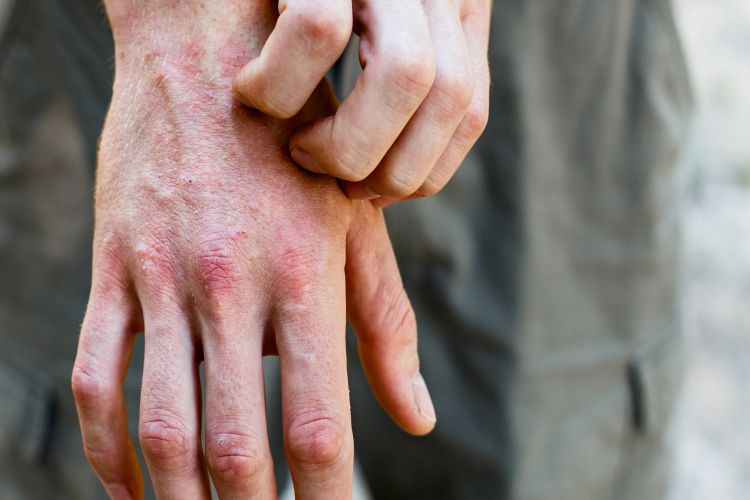 Eczema is an incredibly common skin condition, but it can still be very difficult to treat. The symptoms can be very uncomfortable and hard to manage, particularly during a flare-up. There are many different things that can trigger a flare-up, so in this article, Skin Inspection takes a look at some of the most common causes and the best ways to treat them.
Eczema is an incredibly common skin condition, but it can still be very difficult to treat. The symptoms can be very uncomfortable and hard to manage, particularly during a flare-up. There are many different things that can trigger a flare-up, so in this article, Skin Inspection takes a look at some of the most common causes and the best ways to treat them.
What is eczema?
Whilst it is generally not known what causes eczema, it tends to be linked to other allergies and sensitivities, including asthma and hay fever. It can affect any area of the body and can remain there constantly or fade and come back in flare-ups. The skin in the affected areas tends to be dry, itchy, and cracked, which can lead to it feeling extremely sore. When the skin is cracked in this way, it can also make it more susceptible to infection.
Irritants
There are certain things that are known to irritate the skin and cause flare-ups in eczema sufferers. These tend to be highly chemical products such as cleaning products, as well as acids like lemon juice or alkalis like baking soda. Another common irritant is artificial fragrances, which are often added to a lot of cosmetic products such as skincare. These irritants damage the natural barrier of the skin by stripping it of oil and moisture and causing the skin to become dry and uncomfortable.
If this happens, it is important to stop using the product that caused the irritation and to rinse the skin straight away. You should then pat the skin dry, not rub it, and apply a gentle emollient that does not include artificial fragrances.
Water
Water might seem like the most natural thing in the world, so it is hard to imagine it causing a flare-up, but frequent exposure to water can cause the skin to dry out. This can be very hard to avoid when having to wash hands frequently, and it is made even worse by washing in hot water or using soap or an alcohol-based sanitizer. Instead, try to use a gentle soap or emollient to wash with, and try to keep the water temperature low.
If a flare-up occurs, treat it with a gentle moisturizing product as soon as possible. It is a good idea to moisturize the skin every time it comes into contact with water to protect it.
Stress
Stress is a major contributing factor to many conditions, and eczema is one of them. This can become a vicious cycle as sufferers then begin to stress about their symptoms, and this can make matters even worse. This is because stress can increase the inflammation within the body, which then makes eczema symptoms worse.
It is therefore important to identify the triggers of stress and try to minimize them. This might be through delegating tasks, taking time out for relaxation or speaking to a mental health professional.
Dry air
Dry air, heat, and a lack of humidity can all contribute to an increase in eczema symptoms as they all dry the skin out further. This means that in certain climatic conditions or as the seasons change, it is important to use protective moisturizers as much as possible. Staying in a temperature-controlled environment can also help avoid dramatic changes in temperature, as well as not sleeping under heavy bed covers at night.
Eczema can be very difficult to live with and is also extremely painful. It is therefore important to understand what types of things can trigger a flare-up in order to take the necessary steps to avoid them.




